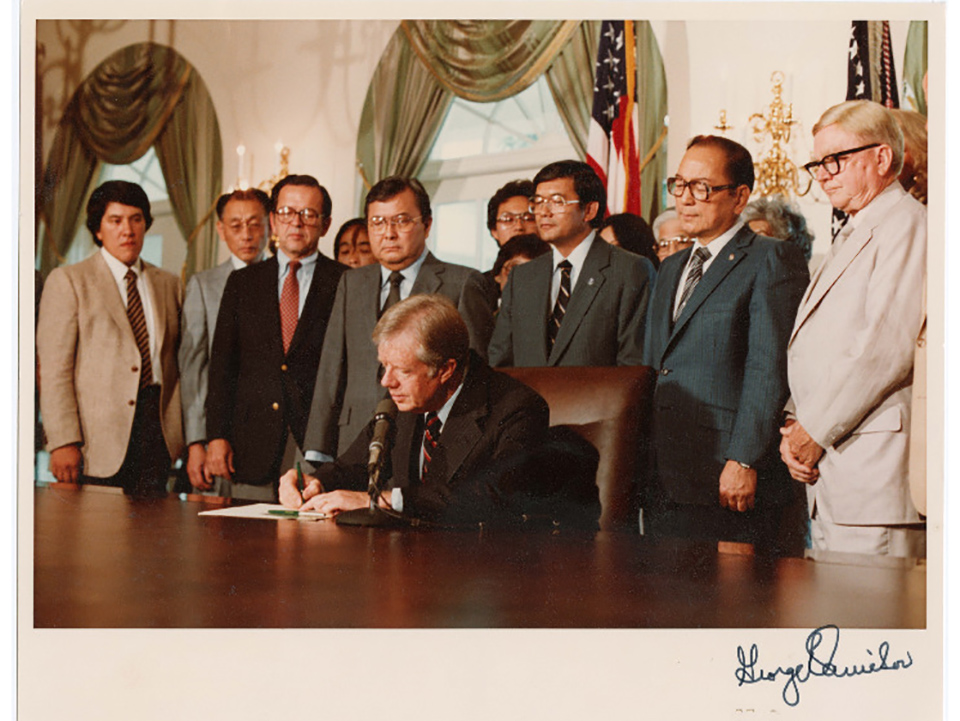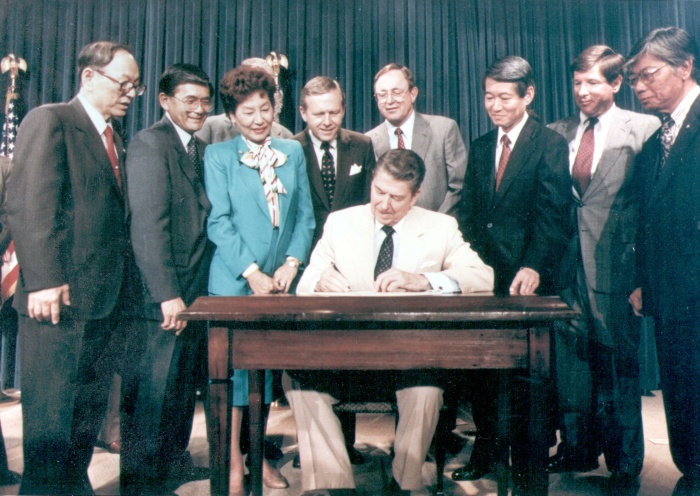BEYOND BARBED WIRE:
The Debate and Diplomacy Surrounding Japanese Internment
DIPLOMACY
In 1945, the US government announced that all internment camps would immediately close by the end of 1945 due to the ruling of the Supreme Court case, Ex parte Mitsuye Endo. With the last internment camp closing at Tule Lake in 1946, Japanese Americans began reclaiming their lives after a period of wrongful imprisonment and psychological anguish. The United States government began diplomatic recognition with Japanese Americans to explain the immorality of internment.
"February 19th is the anniversary of a sad day in American history. It was on that date in 1942…that Executive Order 9066 was issued…resulting in the uprooting of loyal Americans….We now know what we should have known then—not only was that evacuation wrong, but Japanese Americans were and are loyal Americans….I call upon the American people to affirm with me this American Promise—that we have learned from the tragedy of that long-ago experience forever to treasure liberty and justice for each individual American, and resolve that this kind of action shall never again be repeated."
- President Ford
In 1976, President Gerald R. Ford officially repealed Executive Order 9066 and expressed regret to those interned.

President Jimmy Carter signs CWRIC into law.
(Ikeijiri, 1980)
The Commission on Wartime Relocation and Internment of Civilians
On August 2, 1979, the Japanese American Citizens League established the CWRIC. On June 16, 1983, the CWRIC published its recommendations; an apology from the federal government, pardons for those convicted of violations, and establishing a foundation for research and public education on WWII incarceration.
The Civil Liberties Act
In 1988, the Civil Liberties Act was signed, which implemented the recommendations from the CWRIC. $20,000 was given to each former internee who was still alive, and President Ronald Reagan apologized on behalf of the US government.

Reagan signs the Civil Liberties Act.
(Kinoshita, 1988)
"It’s not for us today to pass judgment upon those who may have made mistakes while engaged in that great struggle, yet we must recognize that the internment of Japanese-Americans was just that, a mistake"
- Ronald Reagan
It was interesting because it was not something that was popular among everybody. And I guess the fact that I had been talking to my students, to my patients, and reading about other people’s experiences with camp, I knew what a profound effect it had on all of us and so I knew that was important to talk about even though it wasn’t popular to talk about
-Amy Iwasaki Mass
Continued Negotiations
Japanese Americans explained that the government never gave them a platform to share their experiences. They believed this would help them receive the validation they needed to move past internment. These diplomatic negotiations and arguments impacted Japanese Americans and their relationship with the government.